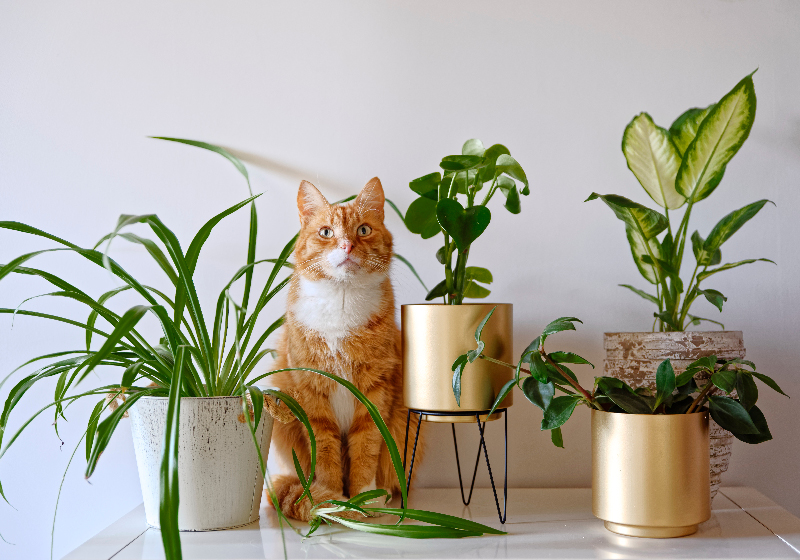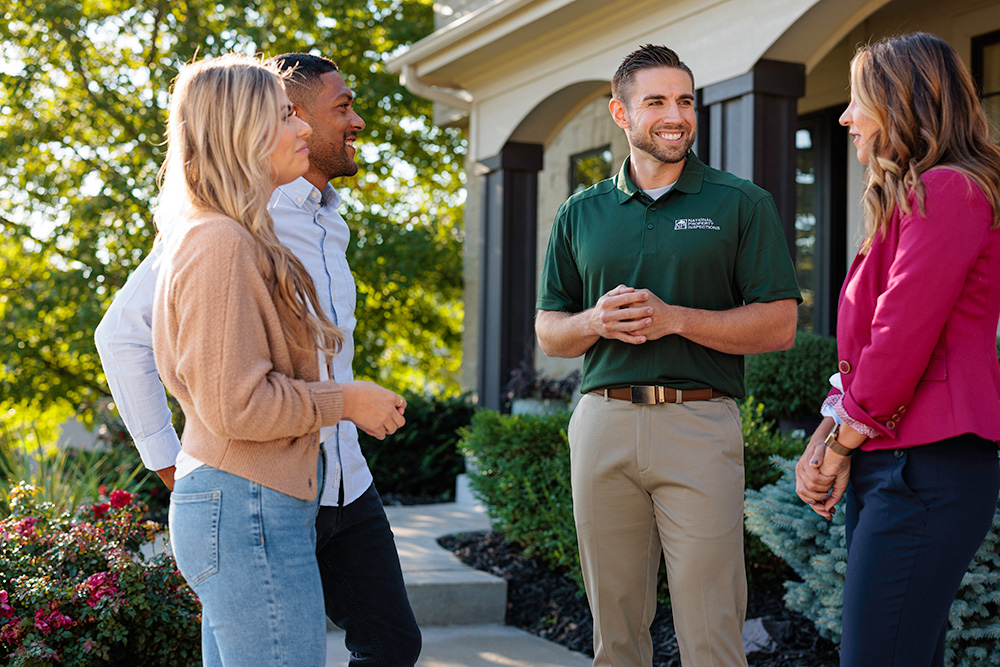If you’re a pet parent looking to become a plant parent, there are some things you should consider before selecting the perfect plant addition to your home. Many plants that are not poisonous to humans can be incredibly toxic to your furry friends. According to the American Society for the Prevention of Cruelty to Animals (ASPCA), over 233,000 pets are accidentally poisoned each year from plants in their homes.
Consequently, it’s essential to know which plants may cause harm to your pets to avoid any potential issues. In addition to learning which plants pose a threat, it’s good to be informed of which plants provide health benefits to you and your furry friends as well.
First and foremost, let’s review which plant characteristics pose the greatest threat to animals. Characteristics of toxic plants include plants with:
Plants with these traits are toxic to both dogs and cats, causing various health-related issues depending on the weight of the animal. The degree of toxicity varies in each situation depending on the type of contact your animal had with each plant. For instance, shrubbery can lead to as little as mild skin irritation in pets that have perhaps just brushed up against them. However, if your pet has digested the shrubbery, this can cause a higher concentration of toxic matter in your animal’s system, leading to digestive issues, internal and external swelling of extremities, vomiting, weakness, lethargy, diarrhea, and in extreme cases, organ failure and death.
The toxicity of plants is broken down into four main categories. The mildest form of contamination is dermatitis, or plants that cause issues of the skin. The next classification of toxic plants refers to the poisonous sap produced by some plant species. The third level of venomous plants causes lethargy, diarrhea, and vomiting. The fourth and most dangerous category of plants causes organs to shut down, leading to death.
If you suspect that your pet has ingested any of the items listed above, contact your vet immediately. If your normal veterinarian is not available, you may want to consider taking your pet to an emergency pet hospital. On the weekend or after hours if vet services are not available, please call the pet poison helpline at: 1-855-764-7661, as it may save your pet’s life.
To further complicate matters, plants that cause these issues in pets aren’t always easy to spot. Surprisingly, many plants that are dangerous for animals are quite popular in floral arrangements. Before you purchase any new plants for your home, please do your research, as it may help to prevent future dangers for your pets. Some of the most common household plants with the highest concentrations of toxicity include the following:
If you had your heart set on any of the plants previously listed, there are many plant alternatives to consider that include health benefits for both yourself and your pets. If you’re still in the beginning stages of learning how to garden or would like a plant that requires a little less upkeep, a spider plant would be a good option. Spider plants only require the occasional watering and act as a natural air purification system.
Another safe bet for you and your pets are orchids. As is the case with spider plants, orchids require little work. In fact, what typically ruins orchids is overwatering. For proper upkeep, it is recommended that you use ice cubes to water the plant, as this usually prevents overwatering.
If you’re worried that your pets may be too rough on your house plants, perhaps the perfect plant for you is the Boston fern. Boston ferns are incredibly sturdy plants and are sure to withstand even the harshest of punishment from your dogs and cats. Additionally, Boston ferns require little water and light to preserve their appearance.
Call National Property Inspections today.
Your local NPI inspector has the professional training and experience to help assess the condition of your home’s structure and major systems. Find your local inspector today to schedule your pre-listing or homebuyer’s inspection.



